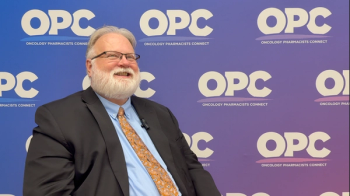
Scott Soefje, PharmD, MBA, BCOP, shares insights about the evolving role of pharmacists at the 2025 OPC meeting.

Scott Soefje, PharmD, MBA, BCOP, shares insights about the evolving role of pharmacists at the 2025 OPC meeting.
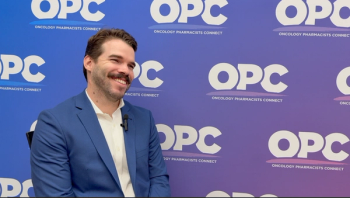
Gabe Hinojosa, PharmD, BCOP, shares key data for pharmacists from the 2025 American Society of Clinical Oncology Annual Meeting.

Manish Agrawal, MD, explores the evolving role of pharmacists in psychedelic-assisted therapy, highlighting ongoing efforts to develop standardized protocols and the emerging involvement of pharmacy teams in patient education and safety.

Continuous glucose monitoring (CGM) is poised to transform type 2 diabetes management.

Ready-to-use glucagon simplifies hypoglycemia rescue by providing easy-to-use options for patients and caregivers.

Manish Agrawal, MD, discusses the expanding influence of his group-based psychedelic therapy model in oncology and beyond, highlighting its adaptation in military posttraumatic stress disorder (PTSD) research, the sustained benefits of long-term patient integration, and growing institutional interest in psychedelic-assisted therapy.

Panelists discuss how the progression of undiagnosed or untreated tardive dyskinesia in older adults can severely compromise independence and quality of life, emphasizing the need for early recognition, risk factor management, and a multidisciplinary approach—including pharmacists—to ensure timely, individualized, and balanced treatment.

Panelists discuss how enhancing the management of tardive dyskinesia in older patients involves recognizing subtle clinical signs, addressing mental health stigma, and leveraging the pivotal role of pharmacists in early detection, patient education, and coordinated, compassionate care.

Continuous glucose monitors provide individuals with type 2 diabetes with real-time, actionable insights about their health.

Experts discuss the low prescription rates of ready-to-use glucagon for individuals with diabetes.

Expert shares insights on advancing diabetes care in community pharmacies.

The expert discusses the evolving landscape of diabetes treatment, emphasizing the importance of comprehensive care beyond glucose management.
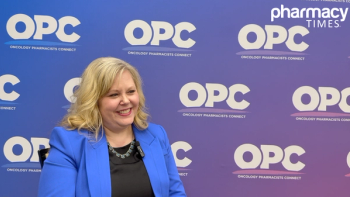
Heidi Finnes, PharmD, BCOP, FHOPA, discusses the evolving landscape of treatment of cutaneous malignancies.
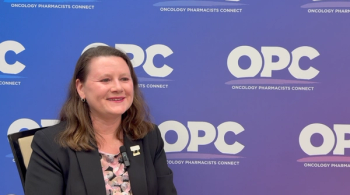
Jolynn Sessions, PharmD, BCOP, FHOPA, shares her experience as a clinical pharmacist and the value of the Oncology Pharmacists Connect meeting.

Amy Duong, PharmD, BCACP, highlights the importance of patient counseling and addressing logistical challenges in treating patients with chronic inflammatory demyelinating neuropathy (CIDP).

Gowri Reddy Rocco, MD, MS, discusses how low vitamin D3 levels, insulin resistance, and metabolic health are critical yet often overlooked factors in understanding and treating long COVID.

Expert shares key upcoming sessions at the American Diabetes Association 85th Scientific Sessions.

Panelists discuss how advancing chronic graft-vs-host disease (cGVHD) management involves improving steroid response rates, exploring combination therapies, utilizing biomarkers for personalized treatment, and striving for steroid-free first-line options to enhance patient outcomes and reduce long-term adverse effects.

Panelists discuss how collaboration between pharmacists and health care providers is essential for optimizing treatment outcomes in chronic graft-vs-host disease (cGVHD), emphasizing the importance of education, symptom management, and a multidisciplinary approach to ensure comprehensive, patient-tailored care.
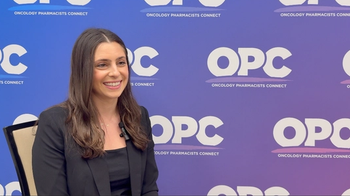
Victoria Nacher, PharmD, BCOP, offers key insights about the evolving treatment landscape for hematologic malignancies.
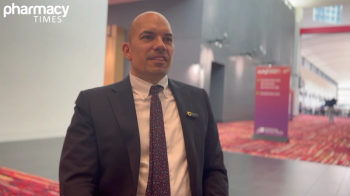
In today’s rapidly evolving health care landscape, pharmacists are playing an increasingly vital role in patient care—but many policymakers remain unaware of the full scope of their expertise and contributions.
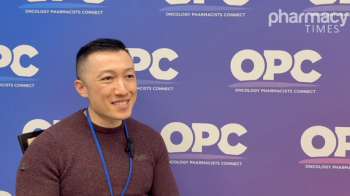
Tim Mok, PharmD, BCOP, BCPS, discusses emerging advancements in treatment of leukemia and lymphoma.
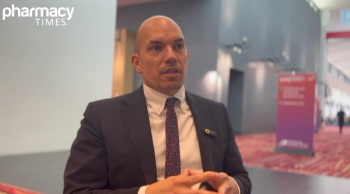
From protecting the 340B Drug Pricing Program to expanding payment pathways through state-level reforms and Medicare Advantage opportunities, Kraus emphasized the critical role pharmacists play in evolving care models.

Manish Agrawal, MD, discusses emerging research on psychedelic-assisted therapy for patients with cancer, including innovative dyadic treatment models, challenges in capturing meaningful outcomes, and growing interest in integrating psychedelics into oncology and palliative care.

Amy Duong, PharmD, BCACP, explains pharmacists' critical role in promoting chronic inflammatory demyelinating neuropathy (CIDP) treatment adherence and staying informed about new therapeutic developments.

Panelists discuss how pharmacists improve patient outcomes in chronic graft-vs-host disease (cGVHD) by addressing accessibility and tolerability challenges, optimizing drug regimens, managing adherence, and fostering trust with patients to ensure consistent therapy and long-term success.

Panelists discuss how pharmacists are essential in managing chronic graft-vs-host disease (cGVHD) by addressing challenges like toxicity, financial and logistical barriers, and a lack of awareness, while advocating for patient education, collaboration with health care teams, and ensuring access to necessary therapies.

Amy Duong, PharmD, BCACP, highlights pharmacists' essential responsibilities in chronic inflammatory demyelinating polyneuropathy (CIDP) patient care and immunoglobulin therapy management.

Pharmacists play a critical role in managing complex pericarditis cases.
